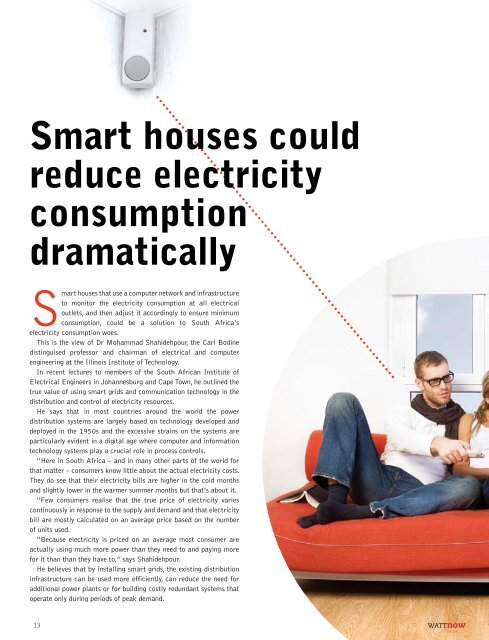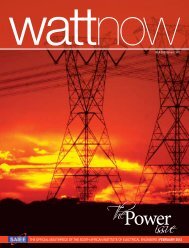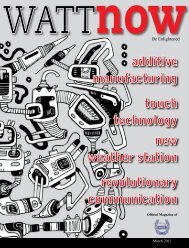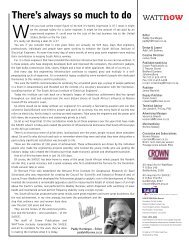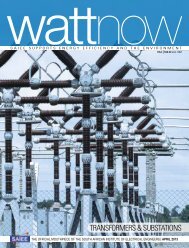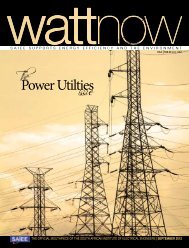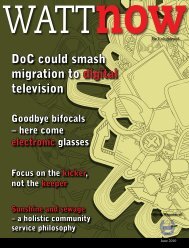Cut electricity consumption with automation - Watt Now Magazine
Cut electricity consumption with automation - Watt Now Magazine
Cut electricity consumption with automation - Watt Now Magazine
You also want an ePaper? Increase the reach of your titles
YUMPU automatically turns print PDFs into web optimized ePapers that Google loves.
Smart houses could<br />
reduce <strong>electricity</strong><br />
<strong>consumption</strong><br />
dramatically<br />
Smart houses that use a computer network and infrastructure<br />
to monitor the <strong>electricity</strong> <strong>consumption</strong> at all electrical<br />
outlets, and then adjust it accordingly to ensure minimum<br />
<strong>consumption</strong>, could be a solution to South Africa’s<br />
<strong>electricity</strong> <strong>consumption</strong> woes.<br />
This is the view of Dr Mohammad Shahidehpour, the Carl Bodine<br />
distinguised professor and chairman of electrical and computer<br />
engineering at the Illinois Institute of Technology.<br />
In recent lectures to members of the South African Institute of<br />
Electrical Engineers in Johannesburg and Cape Town, he outlined the<br />
true value of using smart grids and communication technology in the<br />
distribution and control of <strong>electricity</strong> resources.<br />
He says that in most countries around the world the power<br />
distribution systems are largely based on technology developed and<br />
deployed in the 1950s and the excessive strains on the systems are<br />
particularly evident in a digital age where computer and information<br />
technology systems play a crucial role in process controls.<br />
“Here in South Africa – and in many other parts of the world for<br />
that matter – consumers know little about the actual <strong>electricity</strong> costs.<br />
They do see that their <strong>electricity</strong> bills are higher in the cold months<br />
and slightly lower in the warmer summer months but that’s about it.<br />
“Few consumers realise that the true price of <strong>electricity</strong> varies<br />
continuously in response to the supply and demand and that <strong>electricity</strong><br />
bill are mostly calculated on an average price based on the number<br />
of units used.<br />
“Because <strong>electricity</strong> is priced on an average most consumer are<br />
actually using much more power than they need to and paying more<br />
for it than than they have to,” says Shahidehpour.<br />
He believes that by installing smart grids, the existing distribution<br />
infrastructure can be used more efficiently, can reduce the need for<br />
additional power plants or for building costly redundant systems that<br />
operate only during periods of peak demand.<br />
13


